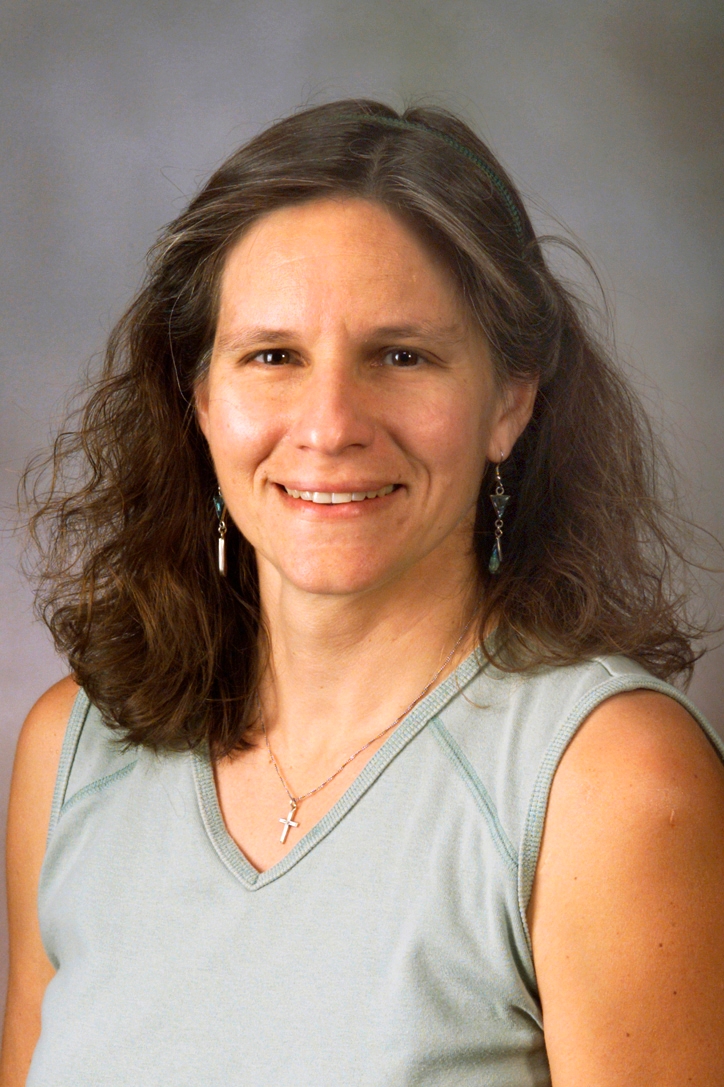VTECC
Through research, instructional support, and assessment; the Virginia Tech Engineering Communication Center (VTECC) fosters partnerships among faculty, industry, and students to operationalize professional skills in engineering. VTECC is a forum for raising the global professionalism of students, supporting faculty who integrate communication into their courses, and contributing to student retention efforts. Together, we are building a national center for collaborative research dedicated to determining the best methods of teaching communication in school and implementing effective communication practices in the workplace.
Mission Statement: VTECC's mission is to empower engineers with professional skills that make knowledge work. We seek to inspire and empower current and future engineers and engineering faculty to integrate the professional and the technical as essential and integral skills for all engineers through the following activities:
• Providing an internationally recognized resource for faculty that inspires and enables them to integrate communication, teamwork, and interdisciplinarity into engineering classes and curricula by providing toolkits, workshops, and related materials and products.
• Providing working, on-the-ground examples of these practices at a world-class research university through integrated curricula for all departments in the College of Engineering and through an interdisciplinary, entrepreneurship-based design program.
• Continually generating cutting edge research that supports and enhances the integration of professional and technical skills in engineering curricula and contributes to new knowledge to our understanding of the teaching and learning of communication, teamwork, and interdisciplinarity in engineering contexts
• Helping industry practitioners improve their communication and collaboration skills through workshops and short courses.
For more information, visit us here →

Marie C. Paretti is a Professor in Engineering Education at Virginia Tech, where she is the director of the Virginia Tech Engineering Communications Center (VTECC). She received a B.S. in chemical engineering and an M.A. in English from Virginia Tech, and a Ph.D. in English from the University of Wisconsin-Madison. Her research focuses on communication and collaboration, design education, and identity (including race, gender, class, etc.) in engineering. She was awarded a CAREER grant from the National Science Foundation to study expert teaching in capstone design courses, and is co-PI on numerous NSF grants exploring communication, teamwork, design, and identity in engineering. Drawing on theories of situated learning and identity development, her work includes studies on the teaching and learning of communication, effective teaching practices in design education, the effects of differing pedagogies on personal and professional identities, the dynamics of cross-disciplinary collaboration in both academic and industry design environments, and gender and identity in engineering. When not at work, she can be found pulling weeds in her garden or bicycling the back roads of Craig County, VA.

Dr. Marie Paretti VTECC - Director

Chris Gewirtz - PhD Student

Ashish Agrawal - PhD Candidate

Racheida Lewis - PhD Student

Mike Ekoniak - PhD Candidate

Amy Hermundstad Nave - PhD Candidate
Matusovich, H. M., Carrico, C. A., Paretti, M. C., and Boynton, M. A. (2017). Engineering as a Career Choice in Rural Appalachia: Sparking and Sustaining Interest. International Journal of Engineering Education, 33(1): 463-475.
McNair, L.D., Paretti, M.C. and Gewirtz, C. (2016). Creativity and identity in the construction of professional portfolios. In Bairaktorova, D. and Eodice, M. (Eds.) Creative Ways of Knowing in Engineering. New York, NY: Springer.
Groen, C., McNair, L. D., & Paretti, M. C. (2016). Prototypes and the Politics of the Artefact: Visual Explorations of Design Interactions in Teaching Spaces. CoDesign. 12(1-2): 39-54.
Hixson, C., Lee, W., Hunter, D., Paretti, M. C., Matusovich, H. M., & McCord, R., (2016). Understanding EEWG: Structural and Attitudinal Elements That Support Graduate Student Writers in an Engineering Department. WLN: A Journal of Writing Center Scholarship, 40(5-6): 18-25
Jones, B. D., Tendhar, C.,* & Paretti, M. C. (2016). The effects of students’ course perceptions on their domain identification, motivational beliefs, and goals. Journal of Career Development. 43(5): 383-397.
Svyantek, M.V., Kajfez, R. L., and McNair, L.D. (2015). Teaching vs. Research: An Approach to Understanding Graduate Students' Roles through ePortfolio Reflection. International Journal of ePortfolio 5.2: 135-154.
Lutz, B., Hixson, C., Paretti, M. C., Epstein, A., & Lesko, J. J. (2015). Mentoring and facilitation in entrepreneurship education: beliefs and practices. Journal of Engineering Entrpreneurship 6(1): 37-51.
McNair, L.D., Davitt, M., and Batten, G. (2015). Outside the ‘Comfort Zone’: Impacts of Interdisciplinary Research Collaboration on Research, Pedagogy, and Disciplinary Knowledge Production. Engineering Studies 7.1, 47-79.
Groen, C., Paretti, M. C., & McNair, L. D. (2015). Learning from expert/student dialogue to enhance engineering design education. In R. Adams * J. Siddiqui (Eds.), Analyzing Design Review Conversations. West Lafayette, IN: Purdue UP.
Boden, D., McNair, L.D., and Borrego, M. (2014). “Leave Your Discipline At the Door”: Matching Expectations for Interdisciplinary Collaboration among Faculty Members. Higher Education in Review, 11: 1-29.
Paretti, M. C., McNair, L. D., & Leydens, J. (2014). Engineering communication. In A. Johri & B. Olds (Eds.), Cambridge Handbook of Engineering Education Research (pp. 601-632). Cambridge, UK: Cambridge UP.
Matusovich, H. M., Paretti, M. C., McNair, L. D., & Hixson, C. (2014). Faculty motivation: a gateway to transforming engineering education. Journal of Engineering Education 103(2): 302-330.
Jones, B. D., Osborne, J. W., Paretti, M. C., & Matusovich, H. M. (2014). Relationships among students’ perceptions of a first-year engineering design course and their engineering identification, motivational beliefs, course effort, and academic outcomes. International Journal of Engineering Education 30(6(A)): 1340-1356.
Ford, J. D. & Paretti, M. C. (Eds.). (2013). Special Issue: Connexions – International Engineering Communication. 1(2).
Paretti, M. C. (2013). Towards an integrated assessment framework: using activity theory to understand, evaluate, and enhance programmatic assessment in integrated content and language learning. Journal of Academic Writing 3(1): 96-119.
Borrego, M., Karlin, J., Beddoes, K., and McNair L.D. (2013). Team Effectiveness Theory from Industrial and Organizational Psychology Applied to Engineering Student Project Teams: A Research Review. Journal of Engineering Education 102(4): 472-512.
Kajfez, R. L., Mohammadi-Aragh, M. J., Brown, P. R., Mann, K. A.,+Carrico, C. A.,+Cross, K. J., Janeski, J. A., and McNair, L.D. (2013). Assessing graduate engineering programs with eportfolios: A comprehensive design process. Advances in Engineering Education, 3(3), 1-29.
Paretti, M.C. and McNair, L.D. (2012). Analyzing the intersections of institutional and discourse identities in engineering work at the local level. Engineering Studies 4(1), 55-78. Reprinted in J. Leydens (Ed.), Sociotechnical Communication in Engineering. New York: Routledge, 2014.
Martin, T., Kim, K., Forsyth, J., McNair, L.D., Coupey, E., and Dorsa, E. (2013). Discipline-based instruction to promote interdisciplinary design of wearable and pervasive computing products. Personal and Ubiquitous Computing 17 (3), 465-478.,
Martin, T., Coupey, E., McNair, L.D., Dorsa, E., Forsyth, J., Kim, K., and Kemnitzer, R. (2011) An interdisciplinary design course for pervasive computing. Pervasive Computing, 80-83, Jan-March 2012.
McNair, L.D., Newswander, C., Boden, D. and Borrego, M. (2011). Faculty and Student Interdisciplinary Identities in Self-Managed Teams. Journal of Engineering Education, 100(2) 274-296.

Affiliation: Assistant Professor at Embry-Riddle Aeronautical University
Dissertation: Mentoring in Engineering Capstone Design Courses: Beliefs and Practices across Disciplines

Affiliation: Department Chair - Engineering Fundamentals at Embry-Riddle Aeronautical University
Dissertation: Assessment of First-Year Engineering Students' Spatial Visualization Skills

Affiliaition: Engineering Coordinator,
Tennessee Telecommunication Association
Dissertation: People not Print: Exploring Engineering Future Possible Self Development in Rural Areas of Tennessee's Cumberland Plateau

Affiliation: Assessment and Evaluation Postdoctoral Research Associate at
University of Michigan, Center for Research on Learning and Teaching
Dissertation: Beyond Classroom:Understanding the Educational Significance of Non-Curricular Engineering Design Experience

Affiliation: Teaching Assistant Professor at East Carolina University
Dissertation: Using Writing Assignments to Promote Conceptual Knowledge Development in Engineering Statics

Affiliation: Post Doctoral Reseacher at
University of Illinois, Urbana-Champaign
Dissertation: The Experiences of African-American Males on Multiracial Student Teams in Engineering

Affiliation: Lecturer at Charles Sturt University

Teaching Assistant Professor, Department of Electrical and Computer Engineerin at UNC Charlotte

Affiliation: Assistant Professor of Experiential Engineering Education (ExEEd)
Rowan University College of Engineering
Dissertation: Exploring Engineering Faculty Members' Experiences with University Commercialization Utilizing Systems Thinking

Affiliation: Academic Researcher at University of Queensland
Dissertation: Understanding Diminsions of Displinary Culture in Undergraduate Students

Affiliation: Post Doctoral Researcer at Virginia Tech
Dissertation: Advancing from Outsider to Insider: A Grounded Theory of Professional Identity Negotiation


